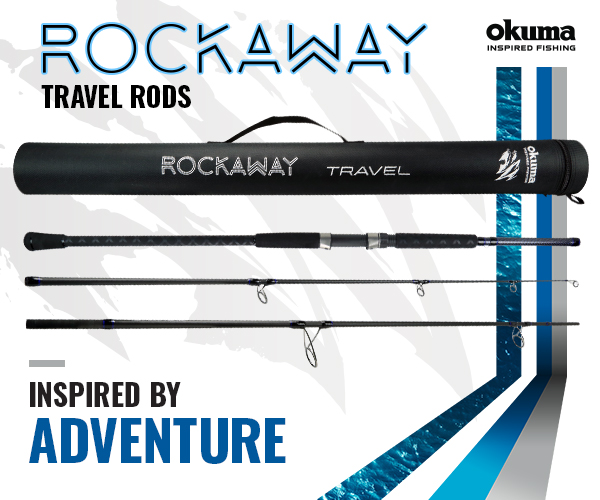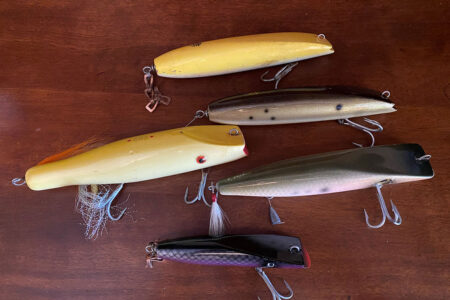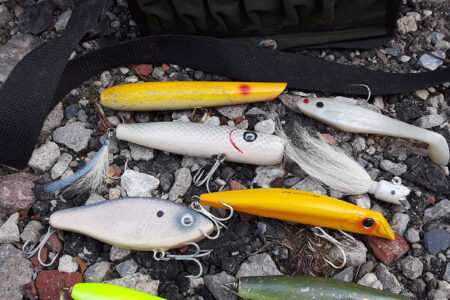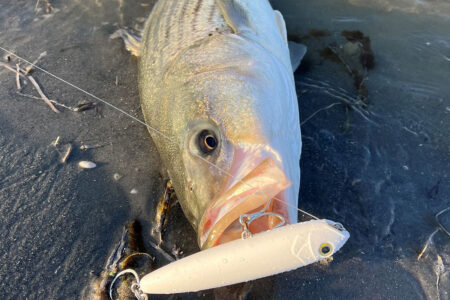Fishing artificials is all about having confidence in the lure you are throwing and the way you are fishing it.
I love catching fish on topwater plugs, so right off the bat that makes me a fan of poppers. Whether it is a metal-lip swimmer, a pencil popper or a spook-type plug, it doesn’t matter. There is something special about watching a striper or blue attack a lure on the surface. Sure, bucktails can be effective in a greater variety of situations, and other plugs and metals will outfish a popper on many days, but when the fish are looking up and feeding on baitfish like mullet, snappers or bunker, give me a popper every time. For the purpose of this column, we will limit the discussion to standard type poppers with a concave nose. Pencil poppers are a whole topic of their own for another day.
As a kid, Creek Chub Striper Strikes always seemed to get the job done and they always found a place in my surf bag. White was my all-around favorite, with blue the choice during the mullet run. Silver seemed to turn on bluefish when the choppers would suddenly become color conscious. Herters were another favorite, similar in design to the Creek Chub, but they could be bought unfinished by the dozen directly from Herters. You added your own paint job and hooks, and if you were really motivated, you swapped out the brass through-wire for a stainless one. The brass had a habit of breaking off at the tail end under the strain of a good fish. The Atom Striper Swiper saw wide use by the surf crowd, but I always found its lack of buoyancy a detriment to working the plug at the slow pace I preferred.
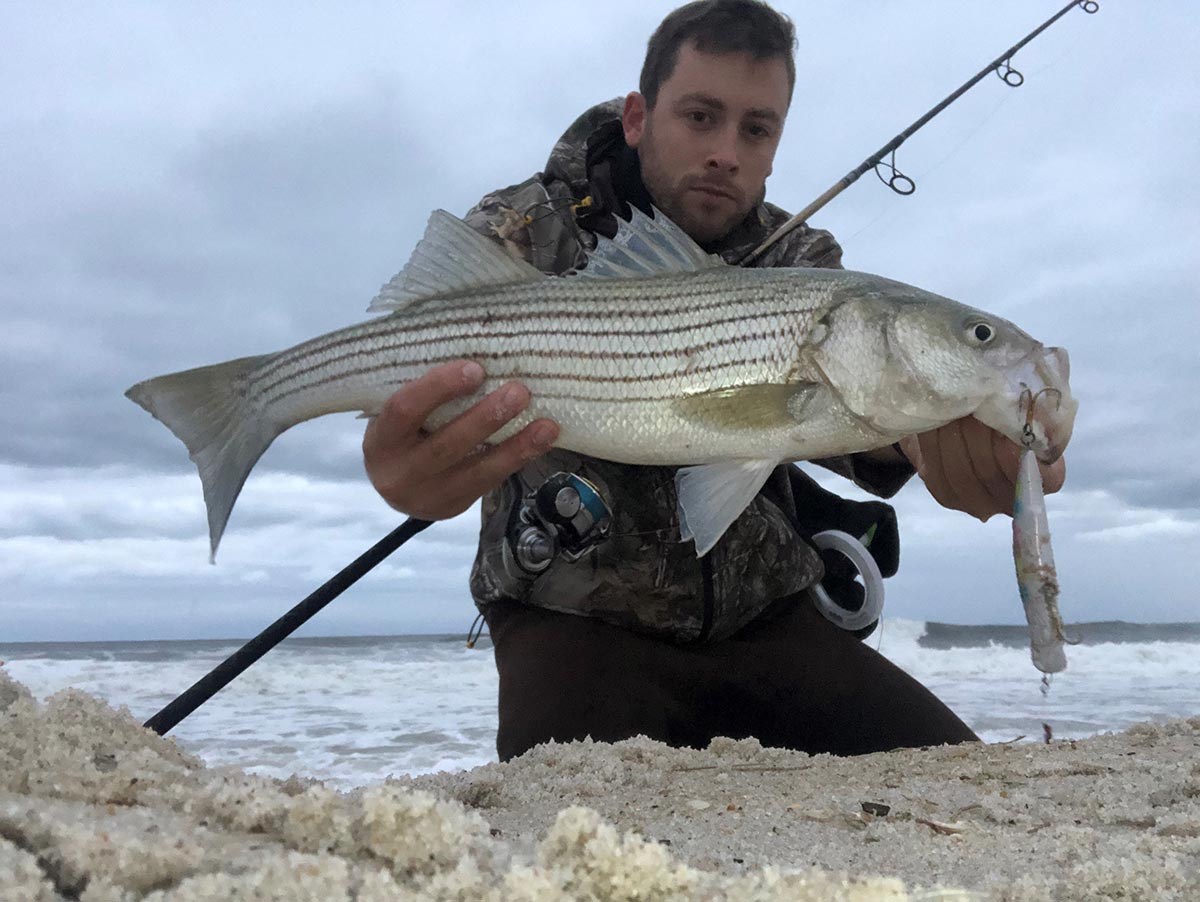
Poppers have come a long way over the years and there are many to choose from these days. In addition to Creek Chub and Atom, there are Yo-Zuri’s Hydro, 3D Floating and Bull; Tsunami’s Talking Popper; Daiwa’s Saltiga; Shimano’s Orca; Gibb’s Polaris; Guide’s Secret; Ocean Born’s Flying Popper; Storm’s Chug Bug and Smack-its. I’ve probably used most of them at one time or another in an attempt to serve our readers with first-hand product information, and I may have even caught fish on most, if not all of them, but I do have a favorite that I never leave home without. Don and Steve Musso’s Little Neck Popper has become the standard for fishing the Northeast surf. In fact, it’s hard to find a surf bag that doesn’t contain at least one of these plugs, and I rely on them for most topwater situations.
When it comes to working a popper, I have always found that slow is better, and not just for stripers. Big bluefish have also proven more susceptible to slowly worked poppers on many occasions. The key to fishing them slow is a plug that can remain on the surface over the course of a slow retrieve. Develop a rhythm to your popping and reeling: reel – pause – pop, and pop the plug hard enough to generate a good splash but not so hard that you pull plug from the water. Some poppers have the ability to swim on the surface, much like a metal lip. There are times when swimming it slowly on the surface with intermittent pops will draw strikes from stubborn bass or blues.
Don’t be afraid to experiment and vary your retrieve. If slow is not drawing strikes, vary your retrieve speed until you find what the fish want on that particular day. However, I have found that the slow retrieve will outfish a fast retrieve probably 90 percent of the time, and will often draw strikes from bigger and lazier stripers. Fishing artificials is all about having confidence in the lure you are throwing and the way you are fishing it. Eventually you will develop confidence in certain lures and the way you fish them, based on your own experiences.
Swimming poppers like the Super Strike at night can be deadly on stripers, especially in situations where you need a little extra distance on your cast and other swimming type plugs are not up to the task. It was a lesson I learned many years ago from the late Bill Miller during a nor’easter on Long Island’s Cedar Bar. I was picking away at some good fish on bottle plugs (Gibb’s Casting Swimmers) while Bill was hooking up on 20- and 30-pound-class fish on just about every cast with an Atom Popper. The rest of us had switched from poppers to swimming plugs as darkness set in. It was a lesson that has since paid big dividends in the nighttime surf.
